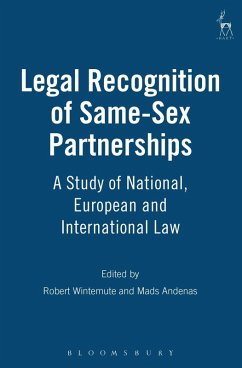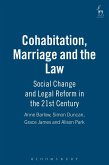Should same-sex couples be permitted to marry? Or should a separate institution of "registered partnership" or "civil union" be created for them? Or should the rights and duties of unmarried different-sex couples be extended to them? Should they be allowed to adopt each other's children, or jointly adopt an unrelated child? How should they be treated with regard to employment, social security, pensions, housing, immigration, taxation, inheritance, and divorce? These questions are being debated around the world, as lesbian, gay, bisexual and transgendered persons increasingly (but not uniformly) insist that they cannot be truly equal without equal treatment for the loving and lasting relationships they form with their partners. In "Legal Recognition of Same-Sex Partnerships", an international team of scholars examines both theoretical issues and the wide variety of legal developments in the United States, Canada, Brazil, thirteen European countries, Israel, South Africa, India, Japan, China, Australia and New Zealand, as well as under European Community and European Convention law, and United Nations human rights law.









